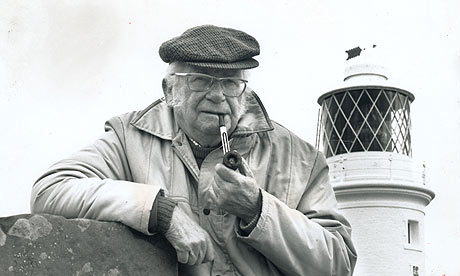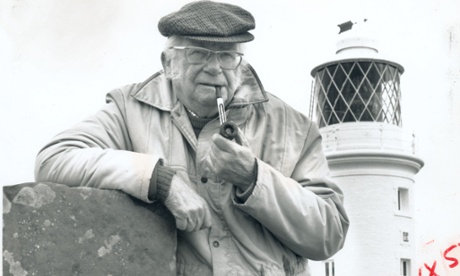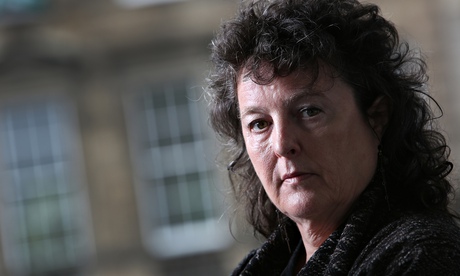Kendal town council recently announced that they are to honour a notable local writer with that rare tribute, a public statue. No, it's not Wordsworth (or Coleridge, De Quincey or Ruskin – all of whom drew inspiration from Cumbria's rugged landscape and inclement weather – or for that matter, Beatrix Potter, Hugh Walpole, Arthur Ransome or John "Postman Pat" Cunliffe).
The writer in question is Alfred Wainwright, an obscure name to many beyond Britain's shores but a God-like figure to those hill-walkers, ramblers and mountaineers who gravitate to the Lake District national park in their droves. Or perhaps it is Wainwright's body of hand-drawn guide books – many of which are still considered definitive guides, all of them researched on foot – that people admire, rather than the actual man himself. Having grown up surrounded by my Dad's many copies of Wainwright books I naturally assumed he would be an admirer. "Yes – of his work," he said when I asked him recently. "But he was a miserable bugger."
It's known that Wainwright was a bit of a moaner and mess of contradictions: though he gave a healthy chunk of his book royalties to animal charities, when he died in 1991 he failed to leave anything to his son from his first marriage. Often making cameo appearances in his own illustrations, he is depicted as a friendly old grandfather type out for an afternoon's ramble. Trying to engage him however – or just attempting to say hello out on the hillside – might have drawn nothing but a blank look, such was Wainwright's distaste for the close of proximity of other people, even if it was halfway up Blencathra during a rain shower.
Which is of course extremely ironic, for Wainwright's works have done as much for Cumbrian tourism as Wordsworth's I Wandered Lonely As a Cloud. Perhaps Wainwright didn't realize that those who had devoured his intricate walking accounts and fastidiously researched maps and pencil drawings would actually use them too. And not only that, but arrive by the carload to use them, something which caused further resentment to avowed bus-traveller Wainwright. After writing these works, "the" public became his public.
Yet his success was not something that happened by accident. While working in the Treasurer's office in Kendal by day, Wainwright's seven-volume masterpiece Pictorial Guide To The Lakeland Fells was planned out from the very beginning and written/drawn at the rate of one page an evening over 13 years. Think about that for a moment and imagine having worked on a project every night since 1996.
Clearly Wainwright was a single-minded obsessive more intent on conveying his love for the fells than for his first wife, who was rarely invited to accompany him on his weekend walks. Which isn't to say he wasn't without a sense of humour. Part of the books' success lies in their slightly bumbling, proto-Bill Bryson narrator, as well as smaller details such as dedicating one volume to "my right leg and my left leg".
Regardless of his foibles, I'm pleased to see Wainwright is going to be honoured by Kendal, not only because his drawing style was as inspiring to me as a child as Raymond Briggs's or Quentin Blake's, or because I got to tread in his footsteps, but because more statues should be erected for writers across Britain.
It's a sentiment that the great man himself might not agree with, though. "He would not have liked it at all," his friend Percy Duff told the Times after the statue plan was announced. "He did not like all the publicity. He was a loner."











